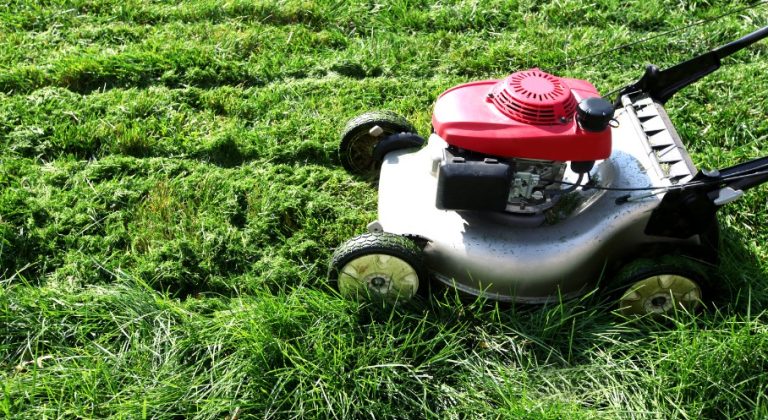Have you ever wondered what the legal time is to mow your lawn in the UK, especially on weekends or early mornings? It’s a common question for homeowners and gardeners alike. While keeping your lawn in good shape is important, it’s just as crucial to be considerate of your neighbours and the surrounding community.
Lawn mowers, particularly petrol-powered ones, can create quite a bit of noise, and there are restrictions in place to prevent noise nuisance in residential areas. Understanding these restrictions will help you maintain your garden without crossing any legal boundaries or annoying your neighbours. So, what exactly are the rules around lawn mowing times in the UK?
Legal Restrictions for Lawn Mowing in the UK

In the UK, there isn’t a single national law that dictates exactly when you can or cannot mow your lawn. However, noise control regulations exist under the Environmental Protection Act 1990, which gives local authorities the power to take action against excessive noise levels. This act is especially important in residential areas where noise nuisance can disrupt the peace.
Local councils have the authority to implement specific regulations regarding noise. As a result, lawn mowing times may vary depending on where you live. These regulations are typically enforced to maintain a balance between allowing people to tend to their gardens and ensuring that neighbours aren’t disturbed by excessive noise at inappropriate times.
In most parts of the UK, councils recommend keeping noisy garden maintenance within certain timeframes. These are often referred to as “quiet hours,” and violating them can result in a formal noise complaint. If you’re reported for causing a noise nuisance, the council can investigate, issue warnings, and in some cases, impose fines if the noise continues to be problematic.
What Time Can You Legally Mow Your Lawn in the UK?
While there are no national laws dictating precise lawn mowing times, local councils typically provide guidelines. During weekdays, it’s generally acceptable to mow your lawn between 8 AM and 8 PM. This time frame allows for garden maintenance during daylight hours while avoiding the times when most people are likely to be resting.
For weekends, the rules are a bit stricter. Weekends are considered a time for relaxation, and therefore, the window for mowing your lawn is narrower. On Saturdays, the acceptable hours usually fall between 9 AM and 5 PM, giving you ample time during the day to get your garden in order.
What Time to Mow Lawn on Sunday UK?
Sundays are often viewed as a day of rest in the UK, and as such, noise restrictions are more stringent. The acceptable time to mow your lawn on Sundays is typically between 10 AM and 4 PM. These hours are designed to ensure that residents can enjoy a peaceful start to their day and a quieter evening.
Outside of these times, especially early in the morning or late in the evening, lawn mowing could be considered a noise disturbance. If you’re mowing outside of these hours, you risk upsetting your neighbours and potentially facing a noise complaint.
Is It Illegal to Mow Your Lawn Early in the Morning in the UK?

Technically, mowing your lawn early in the morning isn’t illegal, but it’s definitely not recommended. Early mornings, particularly before 8 AM, are considered quiet hours in most residential areas. Noise disturbances during these times can result in complaints from neighbours, which may lead to action from your local council.
The definition of what constitutes a “noise nuisance” can vary, but generally, if your lawnmower is disturbing the peace in the early morning, it could fall under this category. To avoid any potential issues, it’s best to wait until at least 8 AM on weekdays and 10 AM on weekends before you start up your mower.
It’s also worth considering that many people may still be asleep or enjoying a leisurely start to their day in the early morning, so starting your mower before 8 AM could be seen as inconsiderate.
Acceptable Time to Mow Your Lawn on Sunday
As discussed earlier, Sunday is often treated as a quieter day, and as such, the acceptable time to mow your lawn is typically between 10 AM and 4 PM. These hours give you a reasonable window to maintain your garden without disturbing the peace.
If you’re unsure about the exact times in your area, it’s a good idea to check with your local council. Some councils might have slightly different recommendations or stricter guidelines based on the density of the neighbourhood or specific community needs.
Quiet Hours Across Different UK Regions
While the general guidelines across the UK suggest that noisy activities should be limited to certain hours, the exact regulations can vary depending on where you live. For example:
- Urban areas like London might have stricter noise regulations due to the higher density of housing and closer proximity of neighbours.
- Rural areas might be more lenient, as houses are often more spread out, reducing the likelihood of disturbing others.
To avoid any confusion, check your local council’s website or give them a call to confirm the recommended quiet hours for lawn mowing in your specific area.
Here’s a quick summary of the most commonly recommended times for lawn mowing:
| Day | Recommended Mowing Times |
| Weekdays | 8 AM – 8 PM |
| Saturdays | 9 AM – 5 PM |
| Sundays | 10 AM – 4 PM |
| Bank Holidays | 10 AM – 4 PM (similar to Sundays) |
When Not to Cut Grass?: Understanding the Boundaries

There are times when cutting your grass isn’t just a potential noise nuisance but could also harm your lawn. Here are a few situations when it’s best to avoid mowing:
- Wet Grass: Mowing when the grass is wet (such as early in the morning when there’s dew or after rain) can damage your lawn. Wet grass can clog your mower and result in an uneven cut. It also tears the blades of grass instead of cutting them cleanly, which can leave the lawn susceptible to disease.
- Extreme Heat: Mowing during the heat of the day can stress your grass, especially during summer. It’s best to mow in the cooler parts of the day, such as late morning or early evening, avoiding the hottest hours.
- Frosty Conditions: Mowing a frosty lawn can cause long-term damage to the grass. The blades become brittle and can be severely damaged by the mower. Wait until the frost has lifted before you cut the grass.
Beyond weather conditions, avoid mowing your lawn late at night or early in the morning, even if it’s dry. Mowing outside of recommended hours can lead to complaints, so it’s best to stick to the middle of the day when possible.
Tips for Mowing Your Lawn Without Disturbing Neighbours
Mowing your lawn doesn’t have to be a noisy affair. Here are some ways to keep the noise levels down and stay on good terms with your neighbours:
- Choose Electric Lawn Mowers: Electric lawn mowers are generally quieter than petrol-powered ones. If you’re in a residential area where noise is a concern, switching to an electric mower could significantly reduce noise pollution.
- Stick to the Recommended Hours: Always aim to mow between 10 AM and 6 PM. This ensures that you’re within the recommended hours and are less likely to disturb anyone.
- Notify Your Neighbours: If you plan to mow early or on a weekend, giving your neighbours a quick heads-up can be helpful. Let them know in advance, especially if you’re mowing on a Sunday or bank holiday, when they may expect more peace and quiet.
Alternatives for Lawn Maintenance During Quiet Hours
If you can’t mow your lawn during the recommended hours, there are alternatives to consider:
- Hand shears for trimming small patches of grass during quiet hours.
- Electric or manual push mowers, which are quieter than traditional petrol mowers, can be used if you’re concerned about noise restrictions.
How to Handle Lawn Mowing Noise Complaints?

If a neighbour approaches you about a noise complaint, it’s important to handle the situation with empathy. Here are some tips for resolving lawn mowing noise disputes:
- Communicate with Your Neighbour: Politely listen to their concerns and try to reach a compromise. If they’re upset about early morning or late-night mowing, adjust your schedule to mow during more acceptable hours.
- Consult Your Local Council: If you find yourself in a dispute that can’t be easily resolved, your local council can provide mediation and offer guidance on the acceptable quiet hours in your area.
By being respectful of your neighbours and following the recommended guidelines, you can avoid unnecessary conflict and keep the peace in your community.
Conclusion
Understanding the legal time to mow your lawn in the UK helps you stay within the law while maintaining your garden.
By following these guidelines, you can ensure that your lawn is perfectly maintained without disturbing your neighbours or risking noise complaints. Remember, being considerate of others is just as important as keeping your garden in tip-top shape!
FAQs About Timing on Mow Lawn in the UK
What time can I mow my lawn on Sunday in the UK?
The recommended time to mow your lawn on Sundays in the UK is between 10 AM and 4 PM. Outside of these hours, you could be at risk of receiving noise complaints from your neighbours.
Can I get fined for mowing my lawn early in the morning?
Yes, you can be fined if a noise complaint is made and the local council determines that you’re causing a noise nuisance. It’s best to avoid mowing before 8 AM on weekdays and 10 AM on weekends.
What is the earliest time I can mow my lawn in the UK?
On weekdays, the earliest recommended time to mow your lawn is 8 AM. On weekends, particularly Sundays, it’s advised to wait until 10 AM to avoid disturbing your neighbours.
What can I do if my neighbour is mowing too early or late?
You can politely approach your neighbour and explain that the noise is causing a disturbance. If the issue persists, you can report the problem to your local council, who may take action.
Are there different rules for mowing lawns in different regions?
Yes, local councils set their own guidelines, which can vary. Some urban areas may have stricter regulations compared to rural areas. Always check with your local authority for precise information.
What tools can help reduce lawn mowing noise?
Electric lawnmowers and manual push mowers are generally quieter than petrol-powered ones. Investing in a quieter model can help reduce the impact of noise on your neighbours.
How do local councils enforce noise regulations?
Local councils respond to noise complaints and can issue warnings or fines for excessive noise. They typically investigate complaints by measuring the noise level and ensuring it complies with local guidelines.





